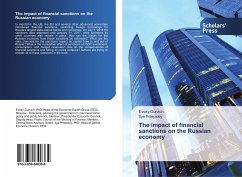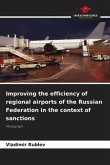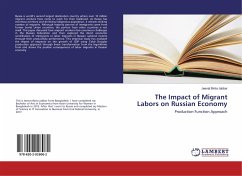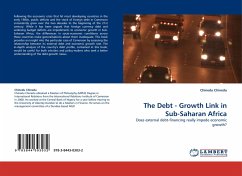In mid-2014, the US, the EU and several other advanced economies introduced financial sanctions, restricting foreign borrowings for Russia's largest state-owned banks and companies. On July 1, 2016 EU sanctions were extended until January 31, 2017, while sanctions by other countries also remain in place. How can the losses for the Russian economy from these sanctions be estimated? What are the main channels for the sanctions' impact on capital flows in and out of Russia? What is the cumulative effect of sanctions on GDP, investment, consumption, and budget revenues? How do the consequences of financial sanctions and falling oil prices compare? Authors are trying to answer all of these questions in the book.
Bitte wählen Sie Ihr Anliegen aus.
Rechnungen
Retourenschein anfordern
Bestellstatus
Storno








